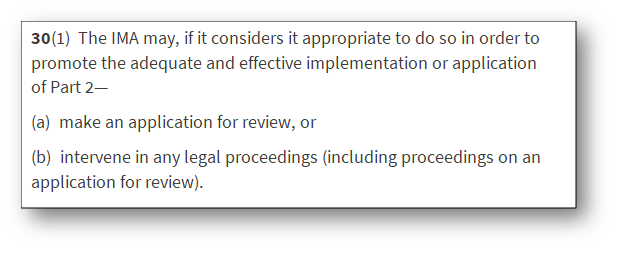Litigation Powers
The IMA takes its role in monitoring and promoting the adequate and effective implementation and application of The Agreements very seriously. The IMA has a number of powers through which it is able to further this key objective. The IMA will use all means at its disposal when discharging its functions including, if necessary, its litigation powers.
Article 159(1) of the Withdrawal Agreement and Article 64(1) of the EEA EFTA Separation Agreement requires, in the UK, the establishment of an independent authority (“the Authority”) to monitor the implementation and application of Part 2 of The Agreements.
The Agreements provide that the Authority is to have powers equivalent to those of the European Commission to conduct inquiries of its own initiative concerning alleged breaches of Part 2 and to receive complaints for the purposes of conducting such inquiries. The Agreements also provide that the Authority is to have the right, following such complaints, to bring a legal action before a competent court or tribunal in the UK in an appropriate judicial procedure with a view to seeking an adequate remedy.
The EUWAA established the IMA and implemented the requirements of The Agreements with regard to the establishment of the Authority within the UK.
The EUWAA confers a number of functions on the IMA, including the power to take legal action, whether by bringing review proceedings of its own volition or intervening in any legal proceedings (including those of review).
The Independent Monitoring Authority Regulations 2020 (“the Gibraltar Regulations”) confer identical litigation powers on the IMA as to litigating in the Gibraltar courts.
Whilst litigation should always be an option of last resort, the IMA will not hesitate to use its litigation powers when it considers it appropriate to do so. This module sets out the most likely, but not exhaustive, circumstances and factors the IMA will consider when it is contemplating initiating or joining legal proceedings.

